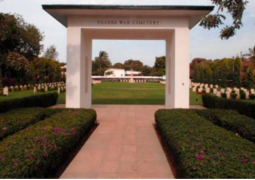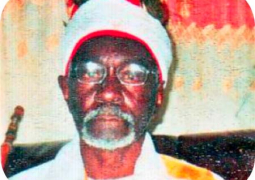The Gambia College Science Club last Thursday marked Science Day at the college campus in Brikama.
The day is meant to remind the people on the good things science can do in society as well as some of its bad effects that can endanger lives that people need to know.
In his remarks on the occasion, Yusupha Touray, Director of Research and Planning, asked thought-provoking questions such as what role would science and technology would play in society looking back at a policy formulae; what do we have to do in reducing poverty, which of course brings PAGE into existence and which in turn stands for the MDGs; and how do we get there?
He asked further: Are we independent when it comes to food security and energy supply?
He said: “Even though we live in the sun we cannot benefit from it, and obtain gainful employment when the youths are on the street unemployed.”
Mr Touray said the youth are the future scientists and are going out to teach so that in the future they can have scientists who can make things in the country that can benefit the land, which also can be exported to other countries.
He also asked rhetorically: “How far are we prepared to putting the needed energy to help the young ones to know science and technology and how do we nurture the young ones to build up the strength to understand science so that they can address our problems tomorrow.
“To be a scientist we have to generate ideas and we have to use these ideas to construct. How do we go out to explore the new energy sources since we have ICT, which is playing an important role in this whole process?”
He also said: “How far we have gone as country in addressing these issues? Now is the time to work it out and that teaching is a noble profession one can ever had.”
In conclusion he urged the youths to do research because there are illnesses that can only be cured by traditional healers, but traditional healing is dying out.
Dr Adama J. Jobe, director, directorate of Science and Technology, Ministry of Basic and Secondary Education, deliberated on the topic: challenges in the teaching of science in The Gambia.
According to him, the challenges in the teaching of science in The Gambia are numerous and range from shortage of qualified and highly skilled science teachers, poor pedagogical practices and acute shortage of laboratory resources, to a curriculum that is overloaded and less relevant to the day-to-day realities of students.
He noted that numerous research findings of the Directorate of Science and Technology of Education since 2006 to date suggest that students are unable to find a way into the excitement of science; instead they find numerous paths out of science.
Mr Jobe also said that one of the overall objectives of science education should be able to provide citizens with the prerequisite knowledge and skills and capabilities to live effective and productive lives.
Mr Jobe stressed that at national level, the availability of reasonable science careers should be able to provide the motivation and impetus for students to build interest in and about science and thus contribute to the improvements of their performance in schools.
For his part, Dr Kenneth Igharo, lecturer at the college, said if one has an interest in science and science teaching “it starts from you as an individual with the interest of serving humanity and being a science teacher is of great benefit to you and of humanity”.
According to him, they are here as science teachers because they have the interest of teaching science, adding that teachers are the most noble people in the universe.
He therefore urged them to keep up the momentum, saying “it is you that can improve science at any level”.
The day also witnessed various exhibitions on what science and technology can do to better in the lives of people, such as in the case of hair relaxer, local soap making, and mosquito repellant amongst a host of other things.



